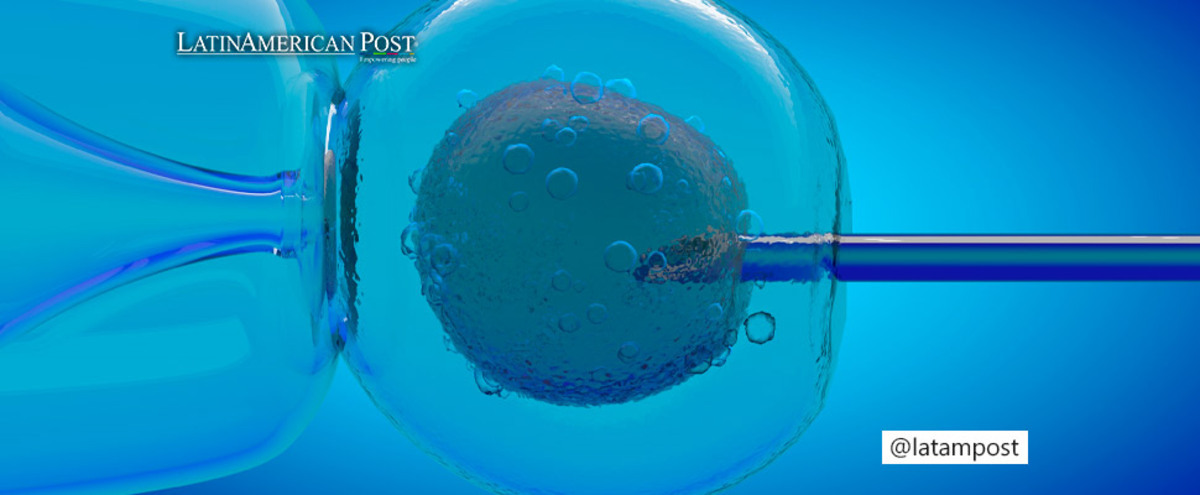Egg Freezing: An Option for Late Motherhood
Egg freezing has become an increasingly popular technique to preserve fertility. If you want to know more about it, keep reading.

Photo: Adobe Stock- Bruno R.B S.
LatinAmerican Post | Julieta Gutiérrez
Listen to this article
Leer en español: Congelación de óvulos: una opción para la maternidad tardía
Currently, many women are opting for egg freezing as a way to preserve their fertility. As society changes and evolves, more and more women decide to postpone motherhood to focus on their career, education, travel or simply because they haven't found the right time yet. Also, some of them may face medical conditions that may affect their fertility in the future. Therefore, egg freezing has become a valuable tool so that those who bet on this method have the option of having biological children in the future.
Egg freezing is an assisted reproduction technique that allows eggs to be extracted and frozen for later use. This method has evolved significantly in recent years, making it more accessible, safe, and effective. But what does egg freezing really involve? How does it work? Is it an option for all women? In Latin American countries, is this method of assisted reproduction accredited? In this article, we'll answer these questions and explore what you need to know about egg freezing.
We recommend you read: Fertility Treatments: What Are They and How Are They Different?
What is egg freezing used for?
Egg freezing is a procedure that pauses a woman's fertility over time, preventing the weakening of the quality and quantity of eggs that occurs naturally as a woman ages, according to the endocrinologist and Sandra Ann Carson, a gynecologist at Yale University in the United States.
This technique, also called oocyte vitrification, is intended to preserve the woman's youngest eggs for future use. Therefore, it serves so that a lady or young lady can become pregnant later if she currently does not have the interest of being a mother for various reasons, such as:
- Postponing motherhood for personal or professional reasons.
- Suffering from any disease or medical condition that may compromise your fertility in the future. Like endometriosis, some type of cancer or some surgery that affects the eggs.
- Having suffered from fertility problems in the past and being sure of being able to have children in the future.
How does this egg freezing technique work?
This assisted reproduction procedure lasts one month and involves several steps. First, the woman who chooses to freeze her eggs must have a vaginal ultrasound to examine her reserve of eggs and measure her hormone levels.
The doctor then analyzes three hormones in a blood sample to test the patient's fertility. These hormones are essential for the egg freezing method, since from these hormonal levels, the fertility capacity of the woman is calculated and the specific dose of ovarian stimulation drugs is established.
Subsequently, the woman will have to self-administer daily injections of hormones for 10 to 12 days after the second day of her menstrual cycle, in order to mature a group of eggs in the ovaries. During this time, pelvic ultrasounds and blood tests will be done every 2 to 3 days to monitor your response to hormones.
After 8 to 14 days have elapsed, a trigger injection will be given to help complete the maturation process of the eggs; 36 hours later, surgery will be performed under anesthesia to remove the eggs using an ultrasound-guided needle through the vagina. The eggs will be prepared for freezing, removing the cluster cells that surround them.
Lastly, the eggs are quick frozen and stored at -196 degrees Celsius.
Is it an option for all women?
The truth is that any woman who has ovaries and is in good health can consider egg freezing. However, according to the American College of Obstetricians and Gynecologists, it is estimated that before the age of 35 is the best time to carry out this assisted reproduction process, since before this age a woman's eggs are healthier and the ovaries respond better to stimulation.
In addition, there are situations in which egg freezing is not recommended or effective. Some of these cases may be:
- Women older than 38 years, because the quality and quantity of eggs decrease with age.
- Women who are already undergoing another fertility treatment. Egg freezing is not recommended because the medications used in such treatment can affect the quality of the eggs.
Egg freezing in Latin America
According to the scientific and educational community Red Latinoamericana de Reproducción Asistida (RED), which is in charge of evaluating and certifying the conditions and advances of the medical centers that are dedicated to these procedures, Latin America has developed agreements in different congresses that allow them to interact with new technologies.
However, the RED stated that most Latin American countries do not have regulations on in vitro fertilization and, furthermore, there are still several Latin American nations in which these fertilization methods are not accredited.
But despite these challenges, RED highlighted that egg freezing has proven to be a viable option for many women in Latin America. Some countries that stand out for the number of processes carried out successfully are Colombia, Peru, Brazil, Chile, and Argentina.




